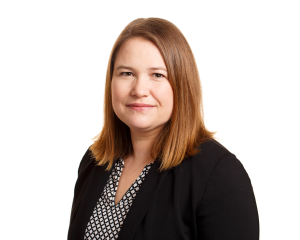Sleep Medicine
The Oregon Clinic’s team of sleep medicine specialists provide expertise in evaluating and treating sleep-related illnesses and disorders.
- ABOUT US
- OUR TEAM
- CONDITIONS & RESOURCES
- FREQUENTLY ASKED QUESTIONS
- OUR LOCATIONS
The science of sleep medicine has advanced in recent years, providing solutions for people suffering from poor quality or insufficient sleep and other associated conditions that affect the respiratory system, specifically diseases of the lungs and associated organs. If you or your partner experience snoring, frequent waking in the night, daytime sleepiness, or insomnia, it may be time to talk with your primary care provider about meeting with a sleep specialist.
Our physicians are dedicated to the practice of evidence-based medicine with special attention to the highest quality of care for patients. We believe the relationship between patients and the sleep specialist is important. In accordance with AASM guidelines, all patients are seen in consultation prior to any diagnostic testing. Our sleep medicine team includes physicians, nurse practitioners, and physician associates, who work in collaboration to meet the individual needs of each sleep patient.
 CONDITIONS
CONDITIONS
- Central sleep apnea
- Excessive daytime sleepiness (EDS)
- Insomnia
- Narcolepsy
- Obstructive sleep apnea (OSA)
- Other sleep-disordered breathing
- Parasomnia (REM sleep behavior disorder)
- Restless leg syndrome (RLS)
- Snoring
 Procedures & Treatments
Procedures & Treatments
- Attended polysomnography (PSG)
- CPAP/BPAP/ASV/AVAPS titration
- Home sleep testing (HST)
- Maintenance of wakefulness test (MWT)
- Multiple sleep latency test (MSLT)
Sleep hygiene is a variety of different practices and habits that are necessary to have good nighttime sleep quality and full daytime alertness.
Healthy sleep is important for both physical and mental health. It can also improve productivity and overall quality of life. Everyone, from children to older adults, can benefit from practicing good sleep habits. Poor sleep can also contribute to other health risks and concerns, avoiding this starts with good sleep hygiene.
One of the most important sleep hygiene practices is to spend an appropriate amount of time asleep in bed, not too little or too much. Sleep needs vary across ages and are especially impacted by lifestyle and health. However, there are recommendations that can provide guidance on how much sleep you need generally. Other good sleep hygiene practices include:
- Eliminate naps. Napping does not make up for inadequate nighttime sleep. However, a short nap of 20-30 minutes can help to improve mood, alertness and performance.
- Avoiding stimulants such as caffeine and nicotine close to bedtime. And when it comes to alcohol, moderation is key. Too much alcohol or alcohol too close to bedtime can disrupt sleep in the second half of the night as the body begins to process the alcohol.
- Exercising to promote good quality sleep. As little as 10 minutes of aerobic exercise, such as walking or cycling, can drastically improve nighttime sleep quality. For the best night’s sleep, most people should avoid strenuous workouts close to bedtime. However, the effect of intense nighttime exercise on sleep differs from person to person, so find out what works best for you.
- Steering clear of food that can be disruptive right before sleep. Heavy or rich foods, fatty or fried meals, spicy dishes, citrus fruits, and carbonated drinks can trigger indigestion for some people. When this occurs close to bedtime, it can lead to painful heartburn that disrupts sleep.
- Ensuring adequate exposure to natural light. This is particularly important for individuals who may not venture outside frequently. Exposure to sunlight during the day, as well as darkness at night, helps to maintain a healthy sleep-wake cycle.
- Establishing a regular relaxing bedtime routine. A regular nightly routine helps the body recognize that it is bedtime. This could include taking warm shower or bath, reading a book, or light stretches. When possible, try to avoid emotionally upsetting conversations and activities before attempting to sleep.
- Making sure that the sleep environment is pleasant. Mattress and pillows should be comfortable. The bedroom should be cool – between 60 and 67 degrees – for optimal sleep. Bright light from lamps, cell phone and TV screens can make it difficult to fall asleep, so turn those lights off or adjust them when possible. Consider using blackout curtains, eye shades, ear plugs, “white noise” machines, humidifiers, fans and other devices that can make the bedroom more relaxing.
- Eliminate electronic devices at least 1 hour before bedtime. This includes phones, computers and tablets.
Frequent sleep disturbances and daytime sleepiness can be the most telling signs of poor sleep hygiene. In addition, if you’re taking too long to fall asleep, you should consider evaluating your sleep routine and revising your bedtime habits. Just a few simple changes can make the difference between a good night’s sleep and a night spent tossing and turning. Source: National Sleep Foundation













